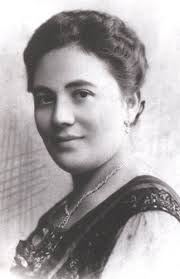Bohuslav Martinů Three Madrigals for Violin and Viola H. 313 (1947)
Leoš Janáček String Quartet No. 2 “Intimate Letters” (1928)
Antonín Dvořák Piano Quartet No. 1 in D Major Op. 23 (1875)
Our March program of BCMS Season 36 consists of works by three highly productive Czech composers who gained prominence beyond their native lands despite including nationalistic elements in their music at a time when doing so would have threatened their career prospects with promoters and audiences. They remained true to themselves whether advised to “conform” by a friendly mentor or banned outright by hostile governments.
While under banishment from the Nazi and post-war governments, Martinů wrote Three Madrigals for Violin and Viola “To Joseph and Lillian Fuchs,” a brother and sister violin and viola duo whose extraordinary intimacy in ensemble playing in the Mozart Duos (K.423, 4) and in the Sinfonia Concertante with orchestra (K.364) is captured on legendary discs, as is their premiere recording of Three Madrigals. Martinů went on to write a Sonata for Viola and Piano in 1955 for Lillian, herself a notable composer and brilliant teacher of generations of chamber musicians.
Leoš Janáček’s String Quartet No. 2 is the result of a request from the Bohemian String Quartet for two quartets to add to their repertoire. The subtitle “Intimate Letters,” given by the composer, is a guide to the emotional origin of the work: a brief meeting in 1917 at the age of 63 with a married woman of 25 (Kamila Stösslová), who re-awakened in him all the passions of youth. There followed an uneven exchange of seven hundred letters, and a special diary, showing his hot pursuit and her cool, indifferent response. She was the muse for his later years and last works:
Our life is going to be in [this piece]…I composed the first movement as my impression when I saw you the first time…Kamila, it will be beautiful, strange, unrestrained, inspired, a composition beyond all…It’s my first composition that sprang directly from things remembered…written in fire.

The work is a passionate chronicle of an imaginary love affair, and resulting child, that occupied him until his death. Much of his portrait of Kamila was intended to be located in the viola part, played instead by the viola d’amore. This plan was abandoned for reasons centering on the inability of the early music instrument to balance with more modern strings. Recent experience and a look at the manuscript reveal that Janáček was unaware of the challenges of an instrument with tunings anchored in the 17th century that make rapid key changes close to impossible. He compensated by redistributing the special effects of the instrument among other members of the quartet in a later edition.
For Dvořák, 1875, the same year Piano Quartet No. 1 in D major was published, was quite significant. It was after Brahms had started asking his German publisher, Simrock, to engrave and distribute a few works by Dvořák:
…with the exception of his help to Antonín Dvořák —a relatively mature artist when they met in 1875—it is arguable that Brahms’s influence on his time was a mixed blessing. When he examined the work of young composers he went at their voice leading and bass lines like the most dogmatic Herr Professor, and usually sent them off to study counterpoint with Nottebohm or some equally exacting pedagogue. Maybe one of Brahms’s secrets was that he had the instincts of a pedant and the gifts of a genius, or rather: he had the genius to withstand his own pedantry. Most of his followers did not. Even Dvořák, whose fertility of invention and freshness of voice enchanted Brahms, would be gently entreated to clean up his counterpoint. To the degree that lesser talents than Dvořák took Brahms’s advice or followed his example, it may have done them harm.
Jan Swafford, Johannes Brahms: A Biography (1997), pg. 335
Brahms was not the only one to cultivate a supportive friendship with Dvořák:
[Janáček]…also championed Dvořák, introducing to Brno audiences his Moravian Duets and Serenade for Strings…He came to know Dvořák personally and the two men went on a walking tour of Bohemia in the summer of 1877.
Grove Dictionary: Leoš Janáček
Enjoy!
Marcus
